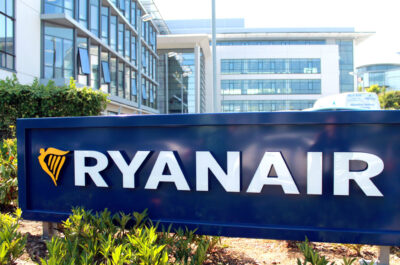It’s no surprise that the travel and accommodation industry was severely impacted by the COVID-19 restrictions during 2020.
New card transaction data from Dojo, part of the Paymentsense brand revealed that their customers in the travel industry saw a 62% decline in card sales between the months prior to lockdown, to the end of the first lockdown (March 2020-June 2020). These statistics reflect what happened within the first lockdown – but with warnings now telling us that we should not be booking summer holidays, could we see an even worse impact on the travel industry this year?
Local Data Company’s high-street closure data also revealed that the reopening rates for travel agents were far lower than other industries, with a reopening rate of 57% of physical stores compared to 73% online reopening. This shows that the need for high-street travel agencies is declining as they move online.
In July, the BBC announced that Holiday firm Tui was to shut 166 of its high street stores. Consumer spending habits have changed during this period, with a lot of companies now offering goods through online platforms. What's missing is that human interaction, especially with the older generation wanting to book holidays in person rather than online or over the phone.
Staycations give small businesses a boost
Although international travel was minimised, there was a significant rise in domestic travel in the form of ‘staycations’.
Across the UK, Plymouth, Sutton and Devonport all experienced a 64% yearly uplift in card sales across July 2020.
This huge jump in business sales can be attributed to the increasing number of tourists visiting scenic UK towns to enjoy a well-deserved break.
Business owners in the picturesque St Ives also experienced a 62% increase in card spend in July 2020, in comparison to 2019. Most smaller businesses would never have predicted this higher-footfall, and it will have helped their cashflow in such a difficult period of trading.
It looks like most of us escaped to the country or the coast from the central cities, causing spend to shift completely from thriving cities and business hubs to remote villages.
In July 2020, in the UK capital, card spend in the City of London and Westminster saw a 40% and 37% decrease respectively. This is perhaps unsurprising as office workers no longer pass through the city, but WFH or work remotely in serene UK locations.
Cards payments preferable for the accommodation and travel industry
In terms of behavioral changes, accommodation and travel sectors have seen the biggest change in the way consumers pay. Debit card spends, rather than credit-card increased by 10% year-on-year, to 57% and 73% respectively across these sectors.
This is perhaps indicative of consumer caution, as the coronavirus has caused economic precarity and therefore people are more likely to spend within their means, rather than put things onto a credit card.
With the travel and accommodation sector experiencing a 9% decline in sales in July and August in 2020, it’s shown us that it’s only the travel industry and the hospitality sector that had declines in sales, whereas all other sectors had an increase.
Jon Knott, Head of Customer Insights at Dojo, part of the Paymentsense brand said: “The international travel industry has experienced a huge loss within its sales over the course of the pandemic. However, some small businesses in tourist hotspots within the UK have seen their sales increase as more of us flocked to seaside towns to enjoy our annual-leave. We’ve seen first-hand how spend has shifted from cities into smaller suburbs and remote regions of the UK.
When it comes to payments, we’ve seen a lot of small businesses make the transition from cash-only to card – and in some cases, card-only. This is often inline with customer preferences and hygiene guidelines, as more of us opt for contactless to avoid touching notes and coins.”
Vicky is the co-founder of TravelDailyNews Media Network where she is the Editor-in Chief. She is also responsible for the daily operation and the financial policy. She holds a Bachelor's degree in Tourism Business Administration from the Technical University of Athens and a Master in Business Administration (MBA) from the University of Wales.
She has many years of both academic and industrial experience within the travel industry. She has written/edited numerous articles in various tourism magazines.


































































































































































































